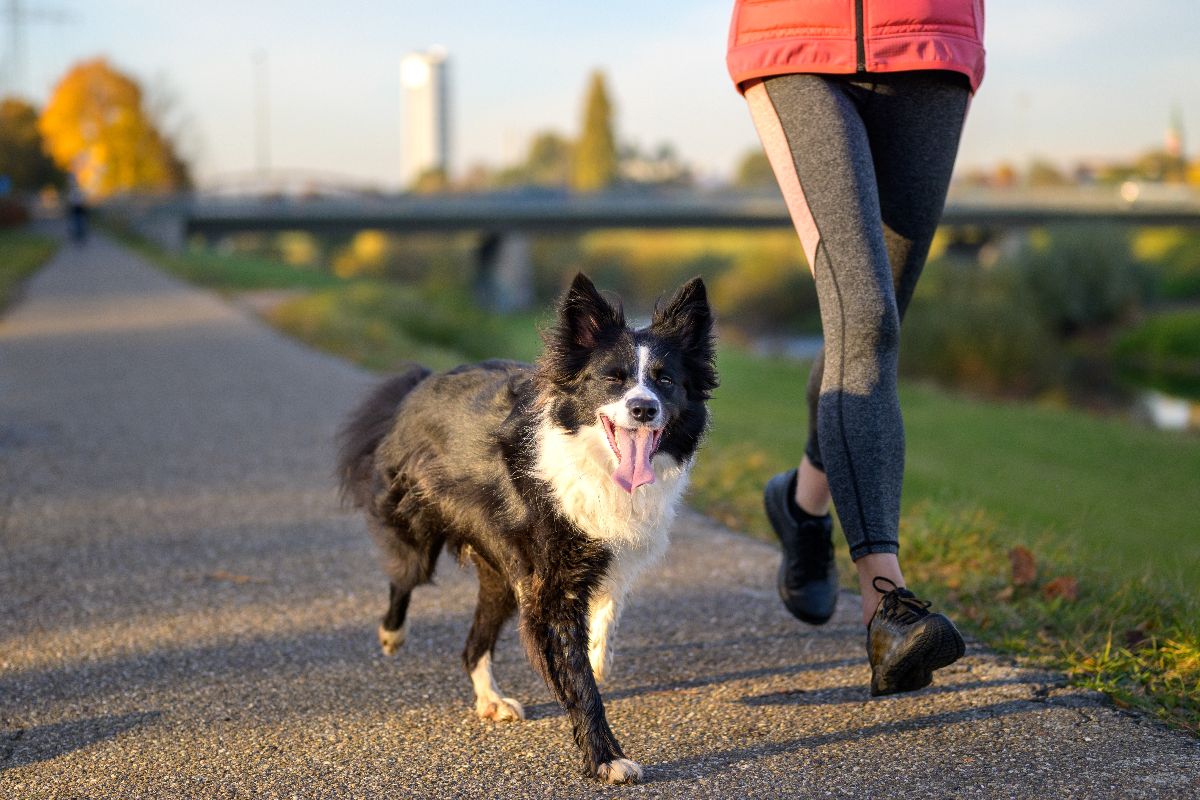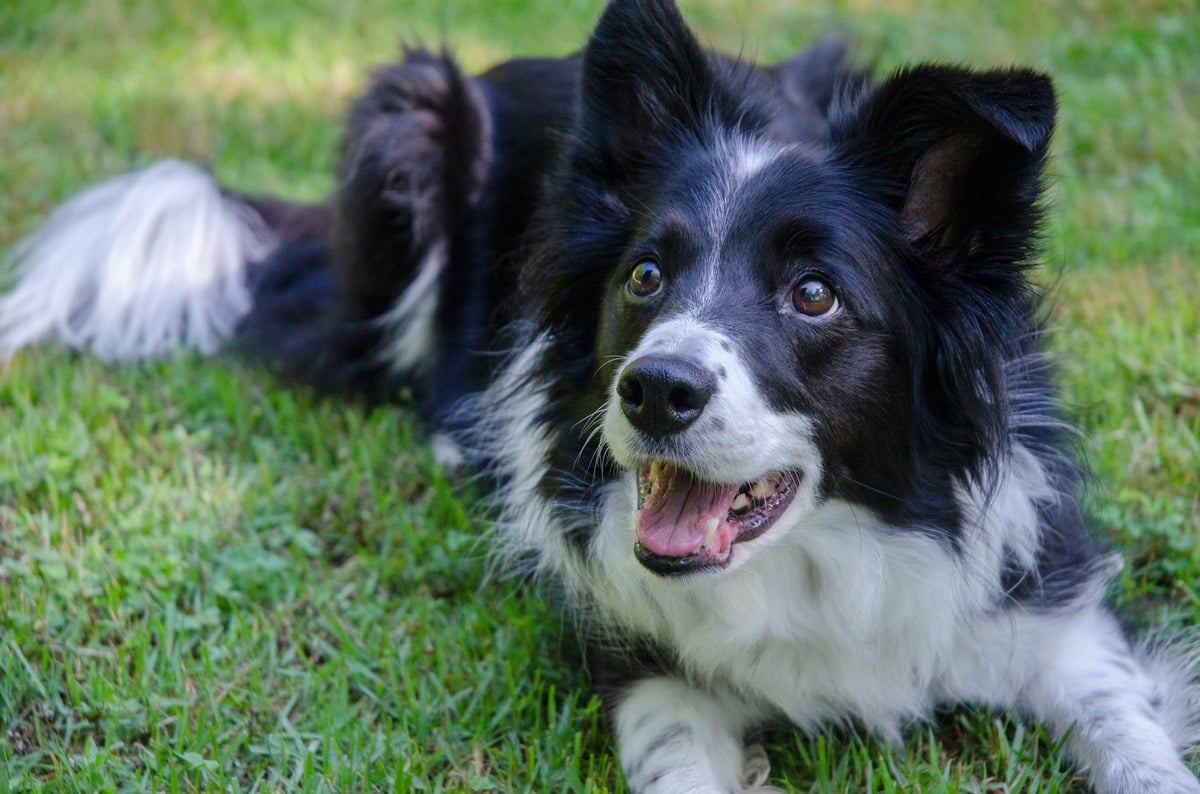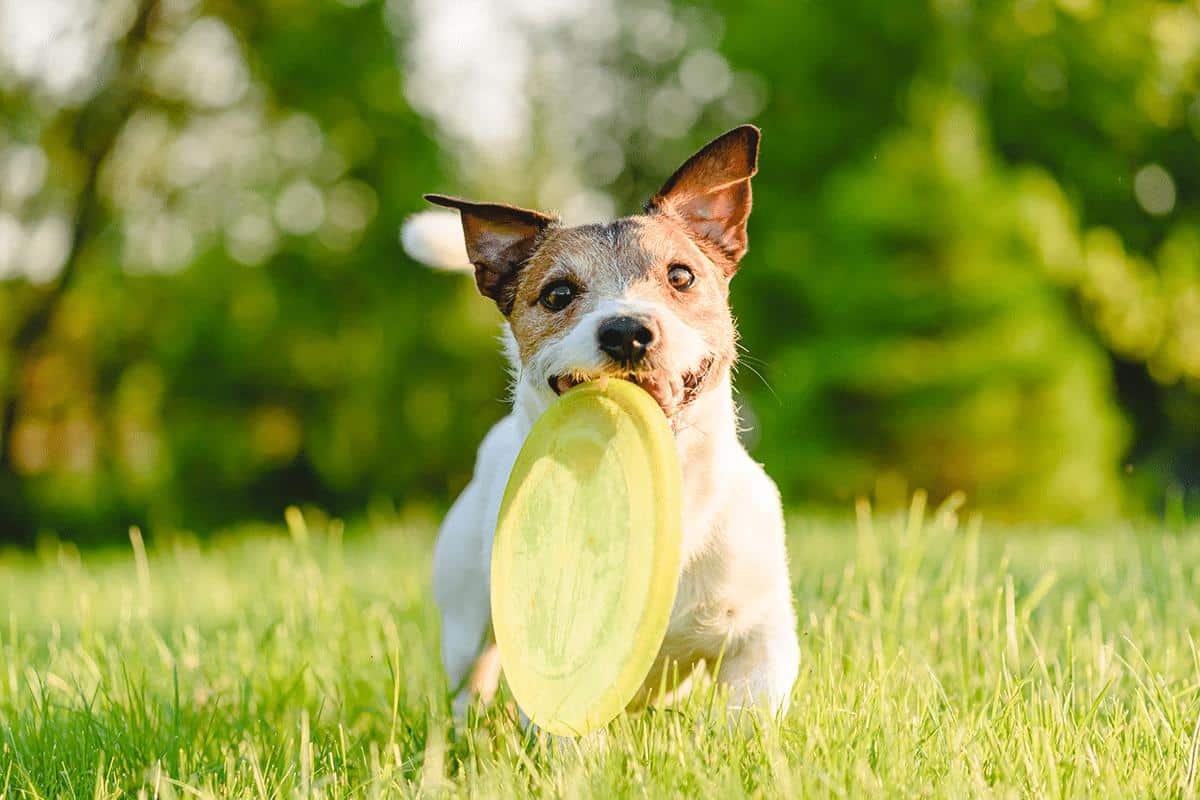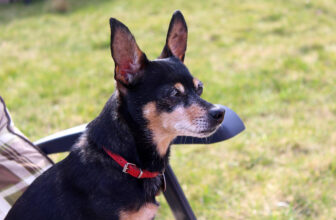
Check out our latest products
Shutterstock
Dogs aren’t just loyal companions or enthusiastic tail-waggers—they’re surprisingly intelligent creatures with cognitive abilities that rival those of toddlers, outsmart squirrels, and sometimes even their owners. Canine intelligence is a complex blend of instinct, adaptability, problem-solving, and the uncanny ability to read human emotions. Over the years, scientists and dog trainers alike have been amazed by how sharp our furry friends can be. From learning hundreds of words to manipulating us into giving them extra treats, dogs constantly prove they’re not just man’s best friend but also man’s brainy little sidekick.
Dogs Can Learn Hundreds of Words

Shutterstock
While your dog might pretend not to understand “bath,” many dogs can learn over 200 human words. Border Collies, in particular, have demonstrated the ability to recognize and respond to an impressive vocabulary. This linguistic talent isn’t just about commands—it includes the names of toys, objects, and even people. With consistent training, dogs can associate words with actions and items, showing they understand much more than we often give them credit for. Yes, your dog knows what “walk” means—and probably your code word for it, too.
Dogs Understand Human Emotions

Shutterstock
Dogs are like furry, four-legged therapists with the power to sense your emotional state. Scientific studies using brain scans have shown that dogs process human voices in ways remarkably similar to us, particularly regarding emotional tone. They can detect if you’re sad, stressed, or excited, often responding with comforting behavior or enthusiastic tail wags. This emotional radar is a key part of what makes dogs such intuitive companions. When you cry and your dog comes over to snuggle, it’s not random—they’re reading the room like a pro.
Dogs Can Outsmart Each Other

Shutterstock
While dogs generally play nice, they’re not above using clever tactics to get ahead, especially regarding food. Studies have shown that dogs can deceive other dogs by leading them away from hidden treats, only to sneak back and claim them later. This kind of strategic thinking shows that dogs are capable of Machiavellian mischief. It’s not just survival instincts; it’s canine-level cunning. So next time your dog gives a rival the ol’ switcheroo, know you’re living with a pint-sized mastermind.
Dogs Learn by Watching

Shutterstock
Dogs are natural observational learners. They watch people and other animals to figure out how to perform tasks or navigate situations. If you’ve ever taught one dog a trick and seen the other pick it up without a lesson, that’s observational intelligence at work. They can learn how to open doors, fetch drinks from the fridge, or—unfortunately—how to unlock their crate. They’re furry interns taking notes on your every move… and then using it against you when the treat bag is left unattended.
Problem-Solving is a Strength

MidJourney
Give a dog a locked puzzle box, and you might witness impressive paw-to-brain coordination. Many breeds, particularly working dogs like the German Shepherd or Poodle, excel at solving complex problems when motivated. Dogs show resilience and creative thinking when navigating obstacle courses, retrieving items, or mastering interactive toys. Watching them figure out how to get to a ball stuck under the couch is like seeing a furry little engineer at work—complete with nose nudges and dramatic sighs.
Different Breeds Excel in Different Smarts

Shutterstock
Not all intelligence looks the same in dogs. While Border Collies top obedience lists, breeds like Bloodhounds have unparalleled scent tracking abilities—an entirely different form of brilliance. Huskies might not always follow orders, but their problem-solving skills in outdoor environments are phenomenal. Even notoriously stubborn breeds like Bulldogs are clever in their way—they choose not to care what you think. Intelligence comes in many flavors, and dogs serve them all with slobbery enthusiasm.
Dogs Can Count (Sort Of)

Shutterstock
Dogs might not be ready to do your taxes, but they have a basic grasp of quantity. In tests, dogs have shown they can distinguish between different numbers of objects, especially regarding food. They tend to go for the bowl with more kibble and can tell if a treat “disappears” when it shouldn’t. This numerical awareness isn’t precise like a calculator, but it’s enough for your dog to realize you’re trying to cheat them out of a second snack. Smart move, trying to swap the bigger biscuit—Fido’s not falling for that.
Dogs Can Experience Jealousy

Shutterstock
You thought jealousy was a human emotion? Nope. Dogs feel it too. Studies show that when dogs see their owners showing affection to another dog—or even a fake stuffed dog—they can become visibly upset and act out. They might bark, push their way in, or act aloof like they just saw you cheat on them. That green-eyed monster isn’t just cute, it’s proof of emotional intelligence and social awareness. Your dog wants your attention and is not afraid to guilt-trip you for it.

Shutterstock
Tool use was once considered exclusive to humans and certain primates, but even dogs have shown this rare trait. Some have been observed using objects to solve problems, like pulling a blanket to retrieve an out-of-reach toy or dropping bones from heights to crack them open. While not as common or complex as in chimps, this behavior hints at high-level reasoning. If your dog figures out how to work the ice dispenser, it’s probably time to sign them up for Mensa.
Dogs Understand Pointing

Shutterstock
While many animals stare blankly when you point at something, dogs get it. They follow your finger or gaze to locate objects, which shows their understanding of human communication. This seemingly simple act of following a point is quite complex and rare in the animal kingdom. It shows dogs recognize that we’re trying to share information with them, not just waving our hands around like lunatics. So yes, when you point at the ball, they’re not just guessing—they get it.
Dogs Have Episodic-Like Memory

Shutterstock
Episodic memory is the ability to recall specific events and experiences—something scientists used to think dogs didn’t have. But newer research suggests dogs can remember personal past events, especially ones involving their humans. For instance, a dog can recall that you hid the toy under the pillow five minutes ago, even without cues. It may not be as vivid as a human memory, but it’s more than just routine-based learning. Your dog remembers when you faked that ball throw—and yes, they still haven’t forgiven you.
Dogs Know When You’re Watching

Shutterstock
Your dog might act like a clown when you’re around and a saint when you’re not, and that’s no coincidence. Dogs seem to understand when being watched and often change their behavior accordingly. This awareness of attention is a sign of self-awareness and social intelligence. That’s why your dog won’t touch the roast chicken on the counter until you leave the room… and even then, they check over their shoulder first. Guilty conscience? More like guilty genius.
Dogs Can Recognize Themselves in Smells

Shutterstock
Unlike humans who rely on mirrors, dogs use scent to understand the world—including themselves. In studies, dogs reacted differently when presented with their own scent compared to that of other dogs, exhibiting signs of self-recognition. That’s a huge deal in the animal world and suggests self-awareness. So while your pup might not pass the mirror test, they definitely know what they smell like—and who’s been sneaking into their turf.
Dogs Can Anticipate Events

Shutterstock
Routine-loving dogs often surprise us by reacting before something even happens. Grab your keys? They know you’re leaving. Pick up the leash? It’s game time. Dogs learn to predict events based on patterns and environmental cues, showcasing associative learning. This predictive intelligence helps them stay ahead of the curve (and you), especially if it involves walkies or treats. You don’t need to speak—your dog already reads your mind and is waiting by the door.
Dogs Manipulate Humans… With Love

Shutterstock
Dogs are master manipulators. They’ve evolved those big, soulful eyes for a reason: to tug at our heartstrings and get what they want. They know exactly when to deploy the head tilt, the dramatic sigh, or the paw on the knee. Behavioral studies suggest dogs are aware that their actions affect our responses, and they totally use it to their advantage. Whether it’s stealing your seat or swindling extra dinner scraps, dogs are brainy charmers in a fur coat.
The Secret Society of Canine Geniuses (And They’re Watching You)

Shutterstock
Dog intelligence goes far beyond tricks and treat puzzles—it’s emotional depth, sharp instincts, and an uncanny ability to read your every move. These four-legged thinkers can outsmart baby gates, decode your snack schedule, and offer silent emotional support like certified pros. When your dog locks eyes with you, it’s not just love—strategy, observation, and maybe even a snack negotiation. So don’t be fooled by the cute face. Behind those soulful eyes is a brain that’s probably five steps ahead—and still judging your hide-and-seek skills.







![[5G & 2.4G] 2K Indoor Security Camera for Home Security, AI Voice Change for 2-Way Talk, Motion Detection, Night Vision, 24/7 SD Recording/Cloud Storage, WiFi Home Camera, Pet Cam with Phone App](https://i3.wp.com/m.media-amazon.com/images/I/61I2U+sTT3L._AC_SL1500_.jpg?w=300&resize=300,300&ssl=1)






